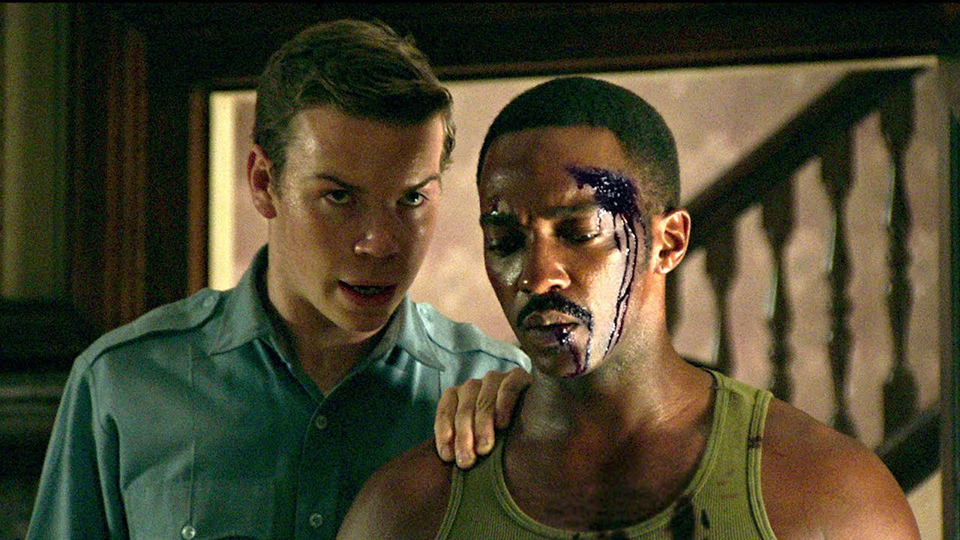
Detroit, the movie based on the Algiers Motel incident, was released this week to mixed reviews. The film boasts a wide array of talent, with big names like John Boyega and Anthony Mackie in lead roles, combined with the younger up-and-coming actor, Algee Smith. The story is set during the 1967 Detroit “riot,” or rebellion as others have come to call it, which was sparked by a police raid of a party being held for two African-American vets returning from Vietnam at an illegal bar. The raid capped a period of mounting tension between police and the African-American community that had prevailed in the period before the social explosion.
Though it concentrates on a particular aspect of what went on in the city of Detroit during those five days in July 1967, the film does an excellent job of laying out the bigger historical framework for viewers who might be unfamiliar with the context of the situation. It highlights the events that led up to the urban revolt.
The narrative focuses on a crew of young Black men and two white women caught up in the 12th Street Riot, as the rebellion became known. The incident that is the film’s subject was set in motion after shots were reportedly fired at a National Guard patrol near the Algiers Motel, a Black-owned business on Woodward Avenue. Authorities claimed the shots came from the Algiers. Police forces moved in shortly thereafter and grabbed a number of guests from the hotel for interrogation. Throughout the night, they are lined up, terrorized, and brutalized by agents of the Detroit Police Department and other law enforcement. After the night was over, three teenagers, all Black males, were found dead. The remaining victims, beaten and humiliated, were told to remain silent about the night’s events.
The movie forces viewers to confront their own privileges, often depicting the uncomfortable reality of systemic injustices inflicted on Black communities. The images projected in Detroit are reflective of the system of racial oppression that still exists in the United States—the continuing cycle of housing segregation, poverty, and violence that has affected marginalized communities. In light of recent events like the 2014 protests in Ferguson, Missouri following the shooting of Michael Brown, which spawned the Black Lives Matter movement, Detroit serves as a reminder that, at least in some respects, not much has changed for over the last 50 years.
The film has come under criticism on a number of points, however, including the erasure of the role played by Black women in July 1967 and for the depiction of such a crucial moment in Black history being handled under the leadership of white writers and directors. Kathryn Bigelow has directed other big budget films (Zero Dark Thirty, The Hurt Locker) and is justifiably applauded for her award-winning work in the past. Despite this, it doesn’t negate the fact that she is examining and retelling a story of Black trauma from a white perspective. Angelica Jade Bastién, a Chicago-based film critic and essayist, wrote a review highlighting this exact sentiment. “It wasn’t the relentless violence inflicted upon Black bodies or the fiery devastation of the riots ripping apart Detroit but the emptiness behind these moments that got under my skin” says Bastién. “Watching Detroit I realized that I’m not interested in white perceptions of Black pain.“
Bastién’s thoughts on the film are worth taking into account when watching. Nevertheless, the star-studded cast brings forth a powerful and intense performance. Algee Smith illustrates an array of gifts, including his singing chops, in addition to his emotional portrayal of Larry Reed in the film. Jacob Latimore, who was cast as Fred Temple, brings the audience to tears with his charm and sheer raw energy, portraying a man coming undone at the hinges of his fear. Will Poulter, who has made a name for himself playing villainous characters, brings life to the lead cop and takes the audience to the edge of their seats in horror.
Detroit is definitely not for those with thin skin. The narrative, though sometimes strenuous and heavy, ultimately leaves viewers with a lingering sense of outrage. It recreates a fraction of the reality that Black Americans have faced (and still face) under the oppressive systems of power in this country and recruits an outstanding Black cast to exemplify it. Highly recommended for all who can stomach the graphic nature of the film.
Detroit opens nationwide on August 4.

MOST POPULAR TODAY

Zionist organizations leading campaign to stop ceasefire resolutions in D.C. area


High Court essentially bans demonstrations, freedom of assembly in Deep South

Afghanistan’s socialist years: The promising future killed off by U.S. imperialism

Communist Karol Cariola elected president of Chile’s legislature



Comments